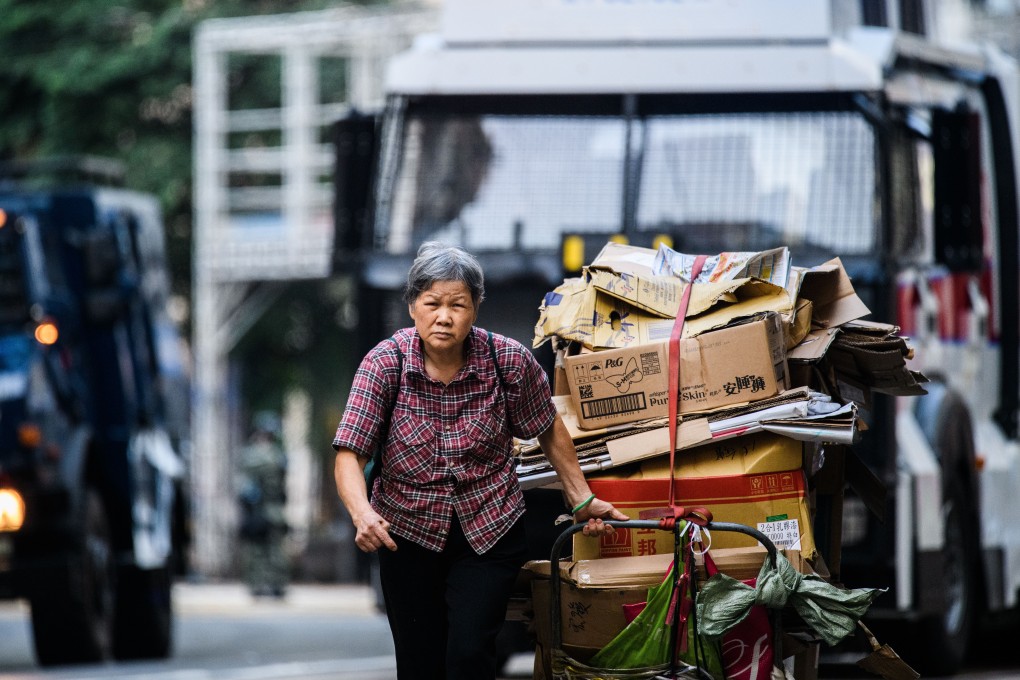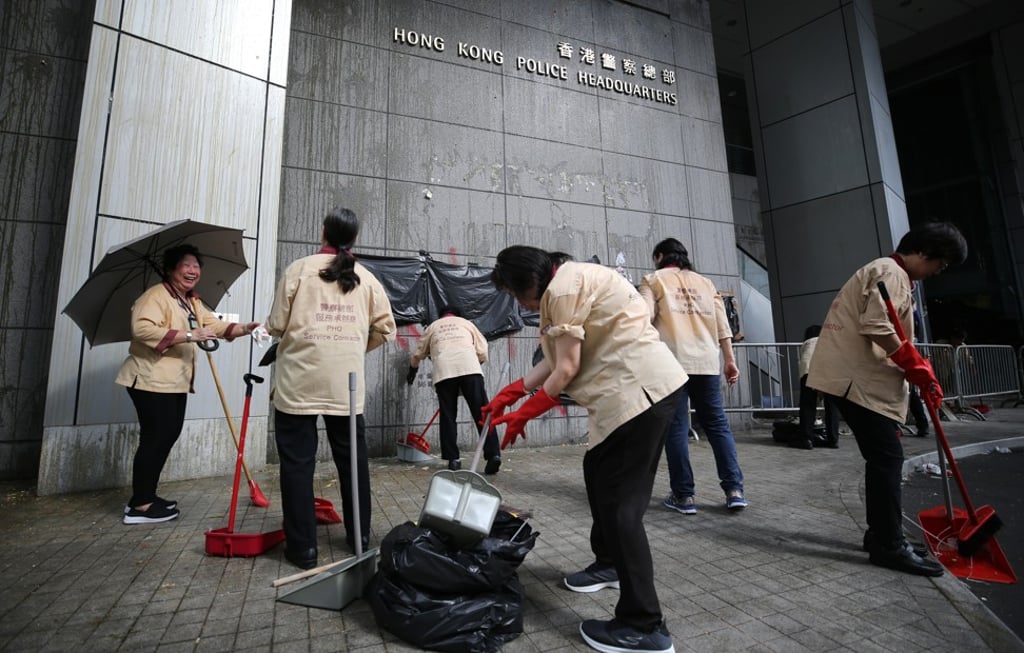Advertisement
Poor, disabled, old: the forgotten voices of the Hong Kong protests
- Many Hongkongers have been affected by clashes between anti-government protesters and police in the past six months
- But those hit the hardest – the poor, disabled, elderly and ethnic minority members – often struggle in silence, as hard lives get even harder
Reading Time:7 minutes
Why you can trust SCMP

Many around the world watched in alarm as Hong Kong’s university grounds became the new front line for clashes between police and anti-government protesters.
The two sides traded tear gas for bricks and Molotov cocktails, as campuses descended into smoking battlegrounds; makeshift fortresses for a hard core of demonstrators who vowed never to give in.
As the protesters barricaded themselves in, stockpiling food and protective gear, fears grew about how the stand-off might end. Foreign media speculated about a Tiananmen Square-style ending and many international students evacuated on the advice of their consulates.
Advertisement
Yet despite all the chaos, a handful of campus staff worked on. Among them, behind the barricades at the University of Hong Kong’s now near-empty campus, Mak Hon Kau dutifully continued his work, sweeping leaves and planting flowers under a hot sun in what was suddenly a deceptively serene-looking courtyard.
Advertisement
Mak, a contract labourer, is among the thousands of working poor in Hong Kong whose lives have been affected by six months of increasingly fiery protests that were sparked by a now-withdrawn extradition bill, but have since turned into wider calls for greater democracy in the territory, a largely autonomous Special Administrative Region of China.
“I’m worried working here could be dangerous, but I need the money and no one else will hire me at this age, what choice do I have?” says Mak, 68, who earns around HK$10,000 (US$1,280) per month. “I’m a contract worker, I don’t get to choose where they send me to work.”
Advertisement
Select Voice
Choose your listening speed
Get through articles 2x faster
1.25x
250 WPM
Slow
Average
Fast
1.25x
